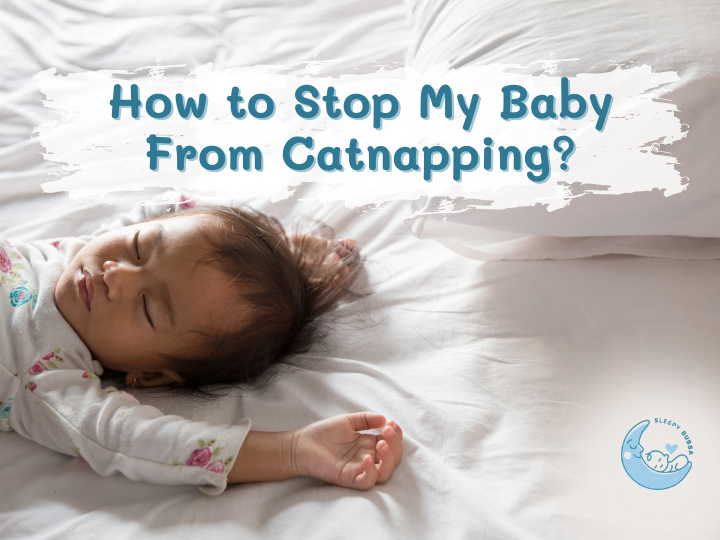Enquire Now with FREE 15 Mins Call
How to Stop My Baby From Catnapping?

Are you frustrated by your baby’s catnapping habits? As a parent, dealing with short and fragmented naps can be challenging and exhausting. In this comprehensive guide, we’ll explore the causes of catnapping and provide practical solutions to help your baby sleep longer and more restfully. With the guidance of a baby sleep consultant in Singapore, you can address catnapping issues and establish healthy sleep habits for your little one.
Catnapping refers to short and often inconsistent naps that typically last for 20 to 30 minutes. While occasional catnaps are normal for babies, persistent catnapping can disrupt their sleep-wake cycles and leave them feeling overtired and irritable. Several factors can contribute to catnapping, let’s dive into the factors and effective strategies to overcome them.
Causes of Catnapping
1. Immature Sleep Patterns
Babies undergo rapid changes in their sleep patterns during the first few months of life, resulting in shorter sleep cycles. This can lead to catnapping as their sleep cycles are still developing.
2. Environmental Factors
External factors such as noise, light, temperature, and disruptions in routine can interfere with your baby’s ability to settle into deep sleep and maintain longer naps.
3. Hunger
Hunger or inadequate feeding before nap time can cause your baby to wake prematurely from their nap due to discomfort or hunger pangs.
4. Discomfort
Physical discomfort from factors such as gas, teething, illness, or an uncomfortable sleep environment can disrupt your baby’s ability to stay asleep for longer periods.
5. Overstimulation
Excessive stimulation from activities, toys, or interactions before naptime can overstimulate your baby’s senses and make it challenging for them to unwind and fall asleep.
Solutions to Stop Catnapping
1. Establish a Consistent Sleep Routine
A consistent naptime routine helps signal to your baby that it’s time to wind down and prepare for sleep. This routine can include calming activities such as changing diaper, reading a book, or singing a lullaby. Consistency is key, so aim to follow the same routine each day to establish healthy sleep associations and reinforce your baby’s internal sleep-wake clock.
2. Create an Ideal Sleep Environment
Ensure your baby’s sleep environment is conducive to restful sleep by minimizing noise, light, and temperature fluctuations. Use blackout curtains to block out light, white noise machines to drown out background noise, and maintain a comfortable room temperature. Additionally, provide your baby with a firm and comfortable mattress and remove any potential hazards from the sleep space to create a safe and secure environment.

3. Address Hunger Before Naptime
Hunger or inadequate feeding before nap time can cause your baby to wake prematurely from their nap due to discomfort or hunger pangs. To prevent this, ensure your baby is adequately fed before naptime by offering a full feeding session or a nutritious snack. Pay attention to hunger cues and aim to feed your baby approximately 30 minutes before their scheduled nap to ensure they are satisfied and can settle into sleep more easily.
4. Encourage Longer Naps
Pay attention to your baby’s tired cues and aim to put them down for naps before they become overtired. Establishing a consistent nap schedule based on your baby’s natural sleep rhythms can help prevent overstimulation and ensure they get the rest they need. Additionally, create a calm and quiet sleep environment free from distractions, and consider implementing a pre-nap wind-down routine to help your baby relax and transition smoothly into sleep. By promoting longer naps during the day, you can help your baby get the rest they need to thrive and reduce the likelihood of catnapping.
Conclusion
Catnapping can be challenging for both babies and parents, but with the right strategies and support, it is possible to overcome this common sleep issue. By addressing the underlying causes of catnapping and implementing practical solutions, you can help your baby sleep longer and more restfully. For personalized guidance and support in addressing your baby’s sleep challenges, consider consulting with a baby sleep consultant in Singapore. Schedule a FREE 20-minute discovery call with Sleepy Bubba today and take the first step towards improving your baby’s sleep quality and overall well-being.







